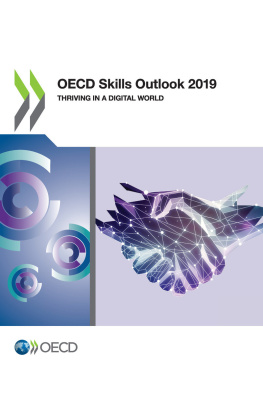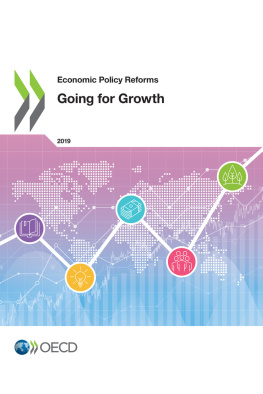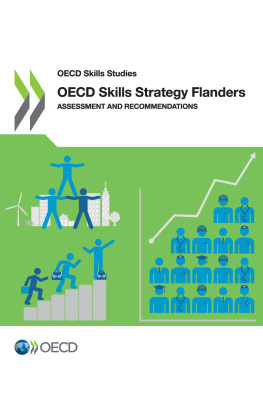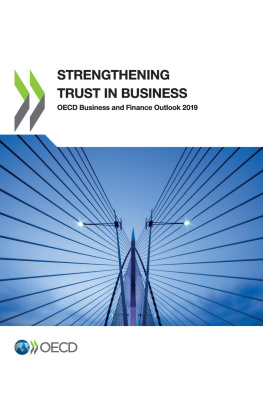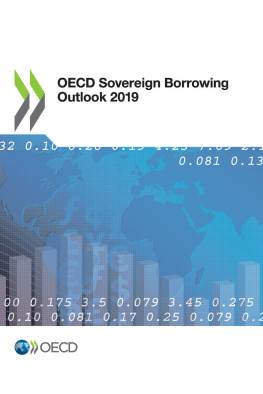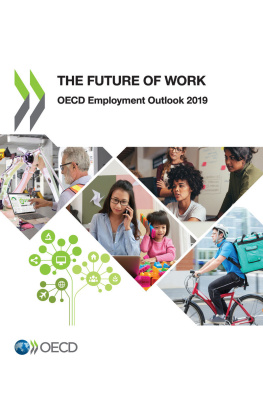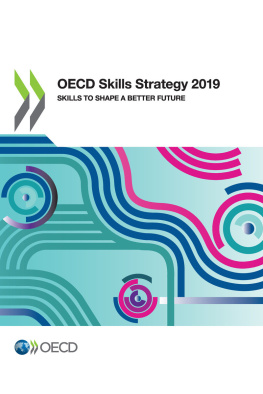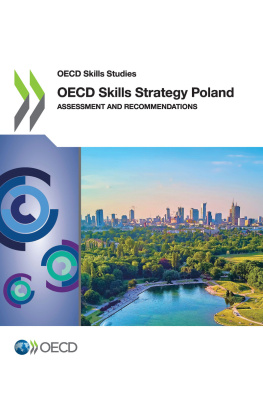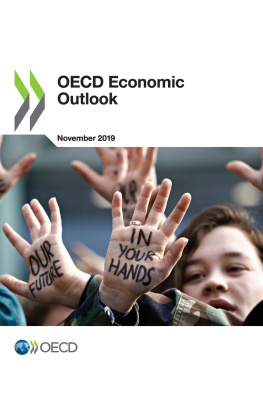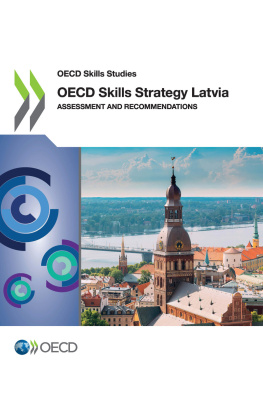OECD - OECD Skills Outlook 2019
Here you can read online OECD - OECD Skills Outlook 2019 full text of the book (entire story) in english for free. Download pdf and epub, get meaning, cover and reviews about this ebook. year: 2019, publisher: OECD Publishing, genre: Politics. Description of the work, (preface) as well as reviews are available. Best literature library LitArk.com created for fans of good reading and offers a wide selection of genres:
Romance novel
Science fiction
Adventure
Detective
Science
History
Home and family
Prose
Art
Politics
Computer
Non-fiction
Religion
Business
Children
Humor
Choose a favorite category and find really read worthwhile books. Enjoy immersion in the world of imagination, feel the emotions of the characters or learn something new for yourself, make an fascinating discovery.
OECD Skills Outlook 2019: summary, description and annotation
We offer to read an annotation, description, summary or preface (depends on what the author of the book "OECD Skills Outlook 2019" wrote himself). If you haven't found the necessary information about the book — write in the comments, we will try to find it.
OECD: author's other books
Who wrote OECD Skills Outlook 2019? Find out the surname, the name of the author of the book and a list of all author's works by series.
OECD Skills Outlook 2019 — read online for free the complete book (whole text) full work
Below is the text of the book, divided by pages. System saving the place of the last page read, allows you to conveniently read the book "OECD Skills Outlook 2019" online for free, without having to search again every time where you left off. Put a bookmark, and you can go to the page where you finished reading at any time.
Font size:
Interval:
Bookmark:
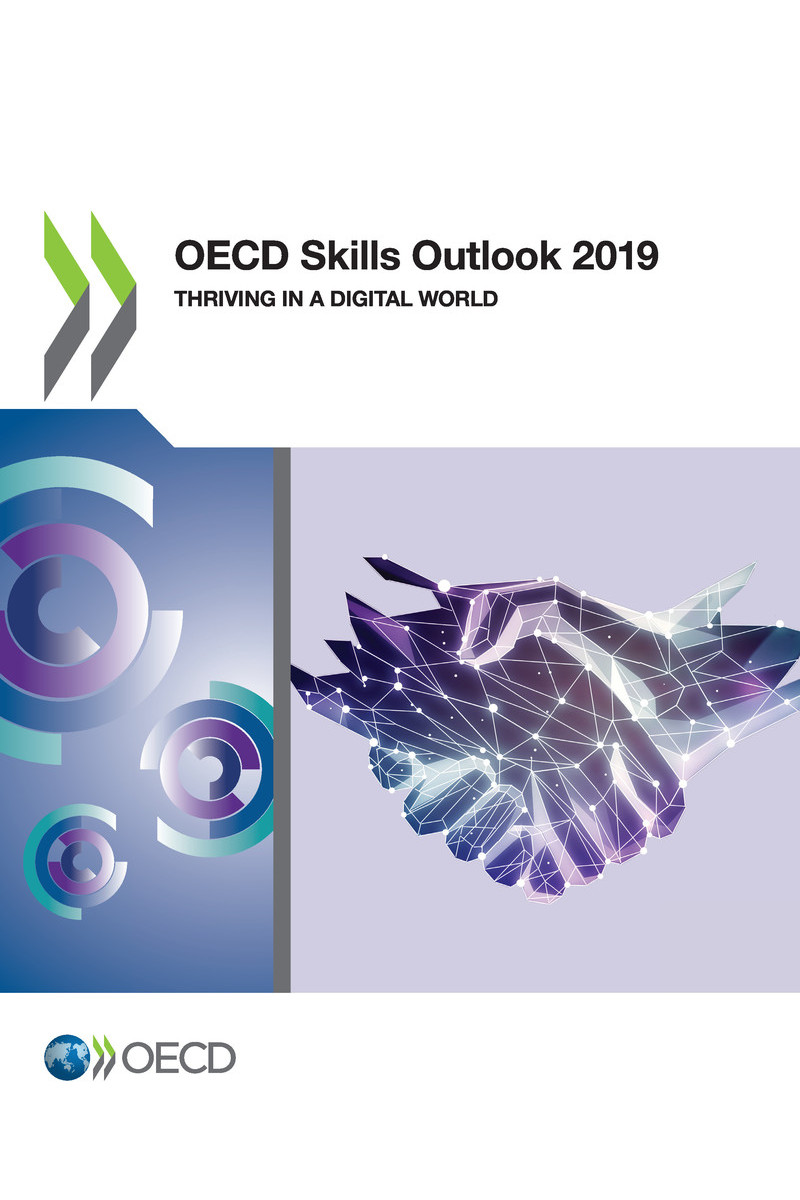
OECD (2019), OECD Skills Outlook 2019 : Thriving in a Digital World , OECD Publishing, Paris, https://doi.org/10.1787/df80bc12-en .
Technological progress is transforming societies, economies and peoples lives as never before. The way we work, learn, communicate and consume is being turned upside-down by digitalisation. As artificial intelligence and machine learning begin to reveal their potential, the new wave of change seems set to roll on for decades.
Citizens, firms and countries that can harness digitalisation stand to benefit hugely, as it enriches lives, boosts productivity and makes learning easier. But those that do not have the capacity to tap into its power risk being left far behind. Digitalisations promise conceals a threat that it could widen existing inequalities and create new ones, as some jobs disappear and some skills become outmoded.
This edition of the OECD Skills Outlook shows that by enabling people to acquire the necessary broad mix of skills, countries can ensure todays technological revolution improves lives for all. Drawing on the Survey of Adult Skills, a product of the OECD Programme for the International Assessment of Adult Competencies (PIAAC), this report identifies the gaps that digitalisation threatens to widen and the best ways to bridge those gaps in the workplace, the classroom, at home, within countries and between countries.
In the workplace, digital technology is contributing to a new wave of automation. Robots are taking on more and more routine tasks, displacing workers from some jobs. At the same time, workers in other jobs can call on ever more sophisticated technology to help them perform their tasks better. In this landscape, it is urgent for countries to focus on building the skills of workers whose jobs are at high risk of automation.
To thrive in a digital workplace, workers need a broad mix of skills strong cognitive and socio-emotional skills, as well as digital skills. The digital revolution makes the same kind of skills mix necessary in all walks of life. Without basic skills, citizens are locked out of the benefits the Internet can offer, or limited to its most elementary uses. Policies need to offer everyone ways to get the most out of the new technology. This is particularly true for regions that are already lagging behind. This report addresses squarely the risk that digitalisation could exacerbate geographical inequalities within countries.
The continuum of skills required by digitalisation underlines the need for every country to foster lifelong learning. This means breaking down inequalities in learning opportunities, adapting school curricula to changing skills requirements including digital skills and giving teachers the best training possible. It also means building adult education and training systems that respond to the labour market.
To achieve these goals and make the most of digitalisation, it is crucial that countries put in place a comprehensive package that co-ordinates policies on education, the labour market, tax, housing, social protection, and research and innovation. Policies on skills and training must form the cornerstone of such a package and are essential to ensure the digital transformation contributes to inclusive growth. In our rapidly digitalising world, skills make the difference between staying ahead of the wave and falling behind.
The development of this edition of the Skills Outlook report was guided by the Skills Strategy Advisory Group, a group including representatives of several OECD committees and working parties, and has benefited from feedback and comments from national government delegates. This edition of the Skills Outlook is an output of the OECD Going Digital project.
The Skills Outlook is the product of a close collaborative effort among several directorates in the OECD Secretariat. This volume was prepared by Stphanie Jamet and Andreea Minea-Pic from the OECD Centre for Skills and benefited from contributions from Nagui Bechichi and Gustave Kenedi. Montserrat Gomendio (Head of the OECD Centre for Skills) provided thoughtful leadership, supervised the work and co-ordinated the work of different directorates. Valuable contributions were also made by Dirk Van Damme (Head of the OECD Skills beyond School Division). Stefano Scarpetta (OECD Director for Employment, Labour and Social Affairs) and Andreas Schleicher (OECD Director for Education and Skills) ensured strategic oversight, and Stefano Scarpetta provided valuable comments to the latest drafts. Co-operation with and contributions from the OECD Directorate for Science, Technology and Innovation, Andrew Wyckoff (Director), Dirk Pilat (Deputy Director) and Mariagrazia Squicciarini, are also greatly acknowledged.
Chapter 3 of the report is based on analytical work undertaken jointly by Elodie Andrieu, Nagui Bechichi, Robert Grundke, Stphanie Jamet, Gustave Kenedi, Luca Marcolin and Mariagrazia Squicciarini. Chapter 4 of the report is based on analytical work undertaken jointly by Michele Cimino, Stphanie Jamet, Elif Koksal-Oudot, Andreea Minea-Pic and Vincenzo Spiezia. Chapter 6 of the report is based on analytical work undertaken jointly by Stphanie Jamet, Gustave Kenedi, Patricia Mangeol and Bart Staats.
The Skills Outlook Oversight Group, a group of experts from several directorates in the OECD, steered the development of the report and provided contributions to its content. Members of the group include David Bartolini, Stijn Broecke, Alessandra Colecchia, David Gierten, Robert Grundke, Mark Keese, Molly Lesher, Luca Marcolin, Fabrice Murtin, Joaquim Oliveira Martins, Glenda Quintini, Cyrille Schwellnus, Vincenzo Spiezia, Mariagrazia Squicciarini, Christina Timiliotis and Barbara Ubaldi.
Font size:
Interval:
Bookmark:
Similar books «OECD Skills Outlook 2019»
Look at similar books to OECD Skills Outlook 2019. We have selected literature similar in name and meaning in the hope of providing readers with more options to find new, interesting, not yet read works.
Discussion, reviews of the book OECD Skills Outlook 2019 and just readers' own opinions. Leave your comments, write what you think about the work, its meaning or the main characters. Specify what exactly you liked and what you didn't like, and why you think so.

